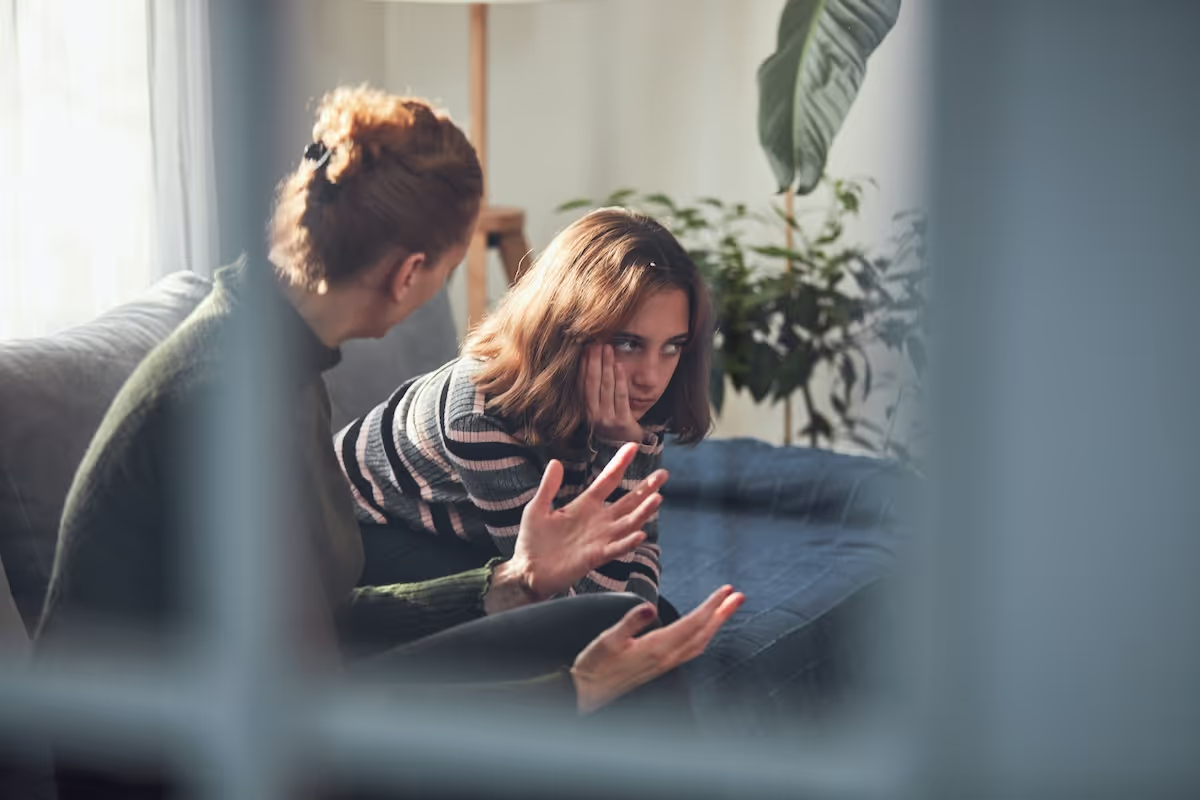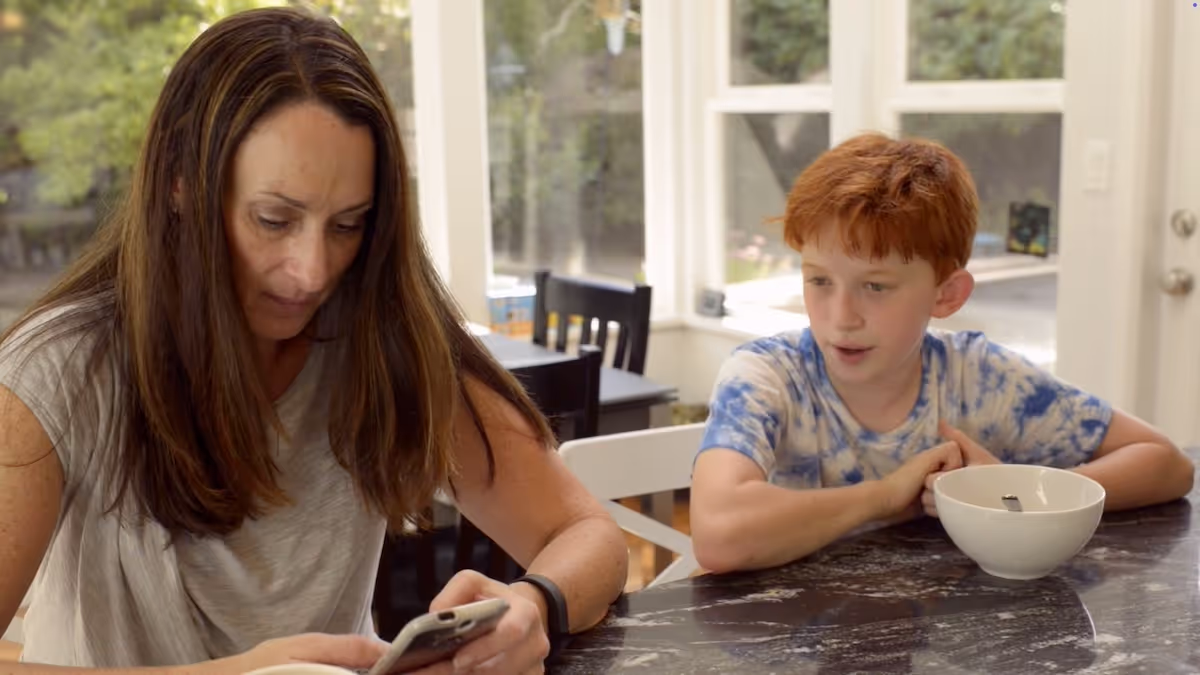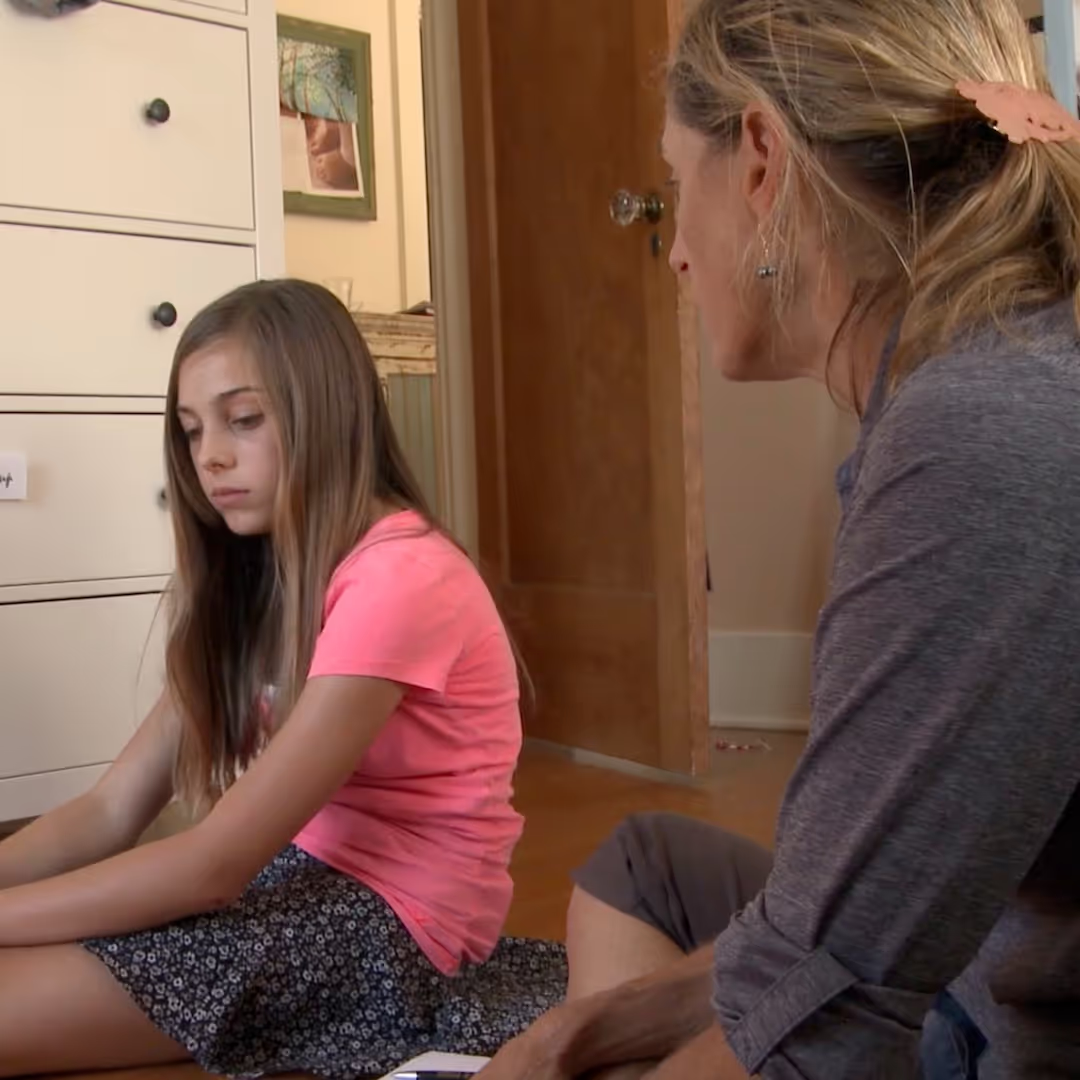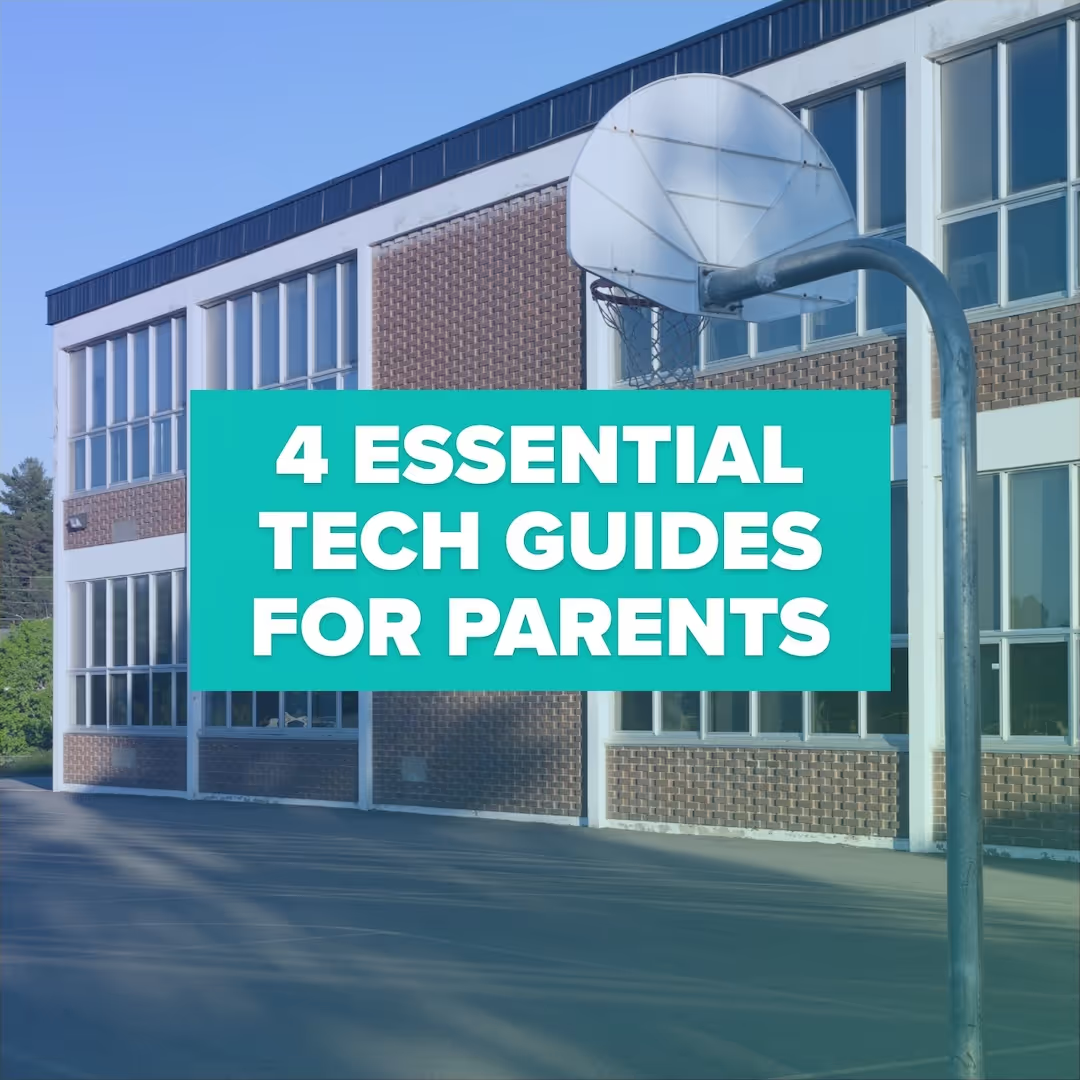


Some months ago, I got back into therapy, and I remember the first day back, the therapist asked me, “Do you do a self-compassion practice?”
I remember the moment because I had one of those little head-scratching kind of moments. I answered something like, “Gosh, I do not, and I don’t think it would really work for me, but I am not sure why I think this.”
I have been doing a mindfulness practice for years now, including loving-kindness, but I have not been doing self-compassion work.
My therapist's question about a self-compassion practice made me want to understand what I might be missing and, most importantly, how self-compassion could help me as a parent and all parents.
So, I invited self-compassion pioneer Dr Kristin Neff to be on The Screenagers Podcast, and I am super happy that the episode is now out.
Psychologist Dr. Kristin Neff, PhD, author of two acclaimed books on self-compassion, is a leading researcher in this field.
In the episode, Dr. Neff brilliantly explains why and how self-compassion can be game-changing during challenging parenting moments. She also shares fascinating research on the topic and stories of how self-compassion has helped her as a mom.
Conflicts with kids around screen time are ubiquitous, and as parents, we question our actions and thoughts and can spiral into negative self-talk. I am one of those parents.
I remember when my daughter was about 13 and having a sleepover. The day before the sleepover, Tessa agreed to a screen time curfew of 11 pm, when all tech would go away for the night.
When 11 pm came, she begged for more time. I stood firm, but I remember feeling a flood of conflicting feelings, including that I was the “bad guy.” The negative self-talk was loud.
Can you relate to similar moments in your parenting?
Learn more about showing our movies in your school or community!
Join Screenagers filmmaker Delaney Ruston MD for our latest Podcast

Learn more about our Screen-Free Sleep campaign at the website!
Our movie made for parents and educators of younger kids
Learn more about showing our movies in your school or community!
“Self-compassion,” Dr. Neff explains, “is understanding what it feels like to be compassionate toward a good friend, supportive, accepting, but also maybe giving them a little boost when they need it and turning that compassion inward.”
It is treating yourself with the same kindness, care, and understanding that you would offer someone else when they are suffering.
Dr. Neff explains that the situation I experienced with my daughter about putting tech away at her sleepover is a prime time to practice self-compassion. “... your child needs a boundary because it is in your child's best interest. That’s the mama-bear fierce compassion part stepping up and saying ‘no.’ The part of you that feels badly about yourself, that’s where you need tender self-compassion towards yourself because you know that it hurts.”
Dr. Neff says, “By embracing our imperfections and treating ourselves with kindness, we create a nurturing inner environment conducive to growth and self-discovery.”
Dr. Neff reminds me that self-compassion is not about indulgence or self-pity but rather realistic understanding without blame or criticism. “It’s really about tender acceptance,” she explains.
Setting and holding limits and boundaries with our children and partners, especially around screen time, is rough. This is the perfect area to practice tender and fierce self-compassion.
I love this study done by Dr. Neff regarding parents of children who have autism. Neff’s son has autism. She found that those who could be more self-compassionate regarding their parenting challenges the better it predicted how well they were managing the stress of those challenges. The amazing thing is that it was not how severe the level of autism was that predicted parents' stress level but rather how much self-compassion they employed!
“This is really interesting,” Dr Neff says. “The level of compassion was more important in predicting their level of stress than how severe their child’s autism was. I see this in other fields as well, for instance, with combat soldiers. The most important thing in predicting PTSD is not how severe the combat was but how self-compassionate soldiers are about the combat they experience. So, in other words, it’s not like what happens to you doesn’t matter, but even more important than what happens to you is how you are relating to what happens to you.”
What has been very helpful for me in doing more self-compassion is staying aware of the three components of self-compassion and saying them to myself at times.
Neff explains the three components as follows:
1st is mindfulness--we need to catch those moments when we start to be self-critical and step out of that loop. If we don’t do that, we will not be able to employ self-kindness — we will just go down the rabbit hole.
2nd is the kindness part-- which is what we learn to say to ourselves in response to self-criticism, along with physical actions, such as putting one's hand on our heart.
3rd, which for me is my favorite part, is thinking about shared humanity. Rather than feeling isolated in our struggles, acknowledging our shared humanity fosters a sense of connection and belonging.
Of course, knowing what self-compassion is versus really starting to build it as a habit are two very different things. Here are a few suggestions.
This episode of The Screenagers Podcast will give you many things that will help your life and parenting journey, as well as interesting research that will be fun to talk about with your kids.
Learn more about showing our movies in your school or community!
Join Screenagers filmmaker Delaney Ruston MD for our latest Podcast

Learn more about our Screen-Free Sleep campaign at the website!
Our movie made for parents and educators of younger kids
Join Screenagers filmmaker Delaney Ruston MD for our latest Podcast
With new videos posted every Tuesday and Friday, be sure to subscribe to our YouTube Channel! Here's our latest videos!
In the latest episode of The Screenagers Podcast that just released Dr. Delaney Ruston talks to author and psychologist Dr. Kristin Neff, Ph.D., about the power of self-compassion. They discuss the prevalent issue of self-criticism among parents, particularly regarding screen time, and how adopting self-compassion can help navigate such challenges
Listen to the full episode here: Apple Podcasts // Spotify // Website // YouTube
As we’re about to celebrate 10 years of Screenagers, we want to hear what’s been most helpful and what you’d like to see next.
Please click here to share your thoughts with us in our community survey. It only takes 5–10 minutes, and everyone who completes it will be entered to win one of five $50 Amazon vouchers.
Some months ago, I got back into therapy, and I remember the first day back, the therapist asked me, “Do you do a self-compassion practice?”
I remember the moment because I had one of those little head-scratching kind of moments. I answered something like, “Gosh, I do not, and I don’t think it would really work for me, but I am not sure why I think this.”
I have been doing a mindfulness practice for years now, including loving-kindness, but I have not been doing self-compassion work.
My therapist's question about a self-compassion practice made me want to understand what I might be missing and, most importantly, how self-compassion could help me as a parent and all parents.
So, I invited self-compassion pioneer Dr Kristin Neff to be on The Screenagers Podcast, and I am super happy that the episode is now out.
Psychologist Dr. Kristin Neff, PhD, author of two acclaimed books on self-compassion, is a leading researcher in this field.
In the episode, Dr. Neff brilliantly explains why and how self-compassion can be game-changing during challenging parenting moments. She also shares fascinating research on the topic and stories of how self-compassion has helped her as a mom.
Conflicts with kids around screen time are ubiquitous, and as parents, we question our actions and thoughts and can spiral into negative self-talk. I am one of those parents.
I remember when my daughter was about 13 and having a sleepover. The day before the sleepover, Tessa agreed to a screen time curfew of 11 pm, when all tech would go away for the night.
When 11 pm came, she begged for more time. I stood firm, but I remember feeling a flood of conflicting feelings, including that I was the “bad guy.” The negative self-talk was loud.
Can you relate to similar moments in your parenting?
“Self-compassion,” Dr. Neff explains, “is understanding what it feels like to be compassionate toward a good friend, supportive, accepting, but also maybe giving them a little boost when they need it and turning that compassion inward.”
It is treating yourself with the same kindness, care, and understanding that you would offer someone else when they are suffering.
Dr. Neff explains that the situation I experienced with my daughter about putting tech away at her sleepover is a prime time to practice self-compassion. “... your child needs a boundary because it is in your child's best interest. That’s the mama-bear fierce compassion part stepping up and saying ‘no.’ The part of you that feels badly about yourself, that’s where you need tender self-compassion towards yourself because you know that it hurts.”
Dr. Neff says, “By embracing our imperfections and treating ourselves with kindness, we create a nurturing inner environment conducive to growth and self-discovery.”
Dr. Neff reminds me that self-compassion is not about indulgence or self-pity but rather realistic understanding without blame or criticism. “It’s really about tender acceptance,” she explains.
Setting and holding limits and boundaries with our children and partners, especially around screen time, is rough. This is the perfect area to practice tender and fierce self-compassion.
I love this study done by Dr. Neff regarding parents of children who have autism. Neff’s son has autism. She found that those who could be more self-compassionate regarding their parenting challenges the better it predicted how well they were managing the stress of those challenges. The amazing thing is that it was not how severe the level of autism was that predicted parents' stress level but rather how much self-compassion they employed!
“This is really interesting,” Dr Neff says. “The level of compassion was more important in predicting their level of stress than how severe their child’s autism was. I see this in other fields as well, for instance, with combat soldiers. The most important thing in predicting PTSD is not how severe the combat was but how self-compassionate soldiers are about the combat they experience. So, in other words, it’s not like what happens to you doesn’t matter, but even more important than what happens to you is how you are relating to what happens to you.”
What has been very helpful for me in doing more self-compassion is staying aware of the three components of self-compassion and saying them to myself at times.
Neff explains the three components as follows:
1st is mindfulness--we need to catch those moments when we start to be self-critical and step out of that loop. If we don’t do that, we will not be able to employ self-kindness — we will just go down the rabbit hole.
2nd is the kindness part-- which is what we learn to say to ourselves in response to self-criticism, along with physical actions, such as putting one's hand on our heart.
3rd, which for me is my favorite part, is thinking about shared humanity. Rather than feeling isolated in our struggles, acknowledging our shared humanity fosters a sense of connection and belonging.
Of course, knowing what self-compassion is versus really starting to build it as a habit are two very different things. Here are a few suggestions.
This episode of The Screenagers Podcast will give you many things that will help your life and parenting journey, as well as interesting research that will be fun to talk about with your kids.
With new videos posted every Tuesday and Friday, be sure to subscribe to our YouTube Channel! Here's our latest videos!
In the latest episode of The Screenagers Podcast that just released Dr. Delaney Ruston talks to author and psychologist Dr. Kristin Neff, Ph.D., about the power of self-compassion. They discuss the prevalent issue of self-criticism among parents, particularly regarding screen time, and how adopting self-compassion can help navigate such challenges
Listen to the full episode here: Apple Podcasts // Spotify // Website // YouTube
Sign up here to receive the weekly Tech Talk Tuesdays newsletter from Screenagers filmmaker Delaney Ruston MD.
We respect your privacy.
Some months ago, I got back into therapy, and I remember the first day back, the therapist asked me, “Do you do a self-compassion practice?”
I remember the moment because I had one of those little head-scratching kind of moments. I answered something like, “Gosh, I do not, and I don’t think it would really work for me, but I am not sure why I think this.”
I have been doing a mindfulness practice for years now, including loving-kindness, but I have not been doing self-compassion work.
My therapist's question about a self-compassion practice made me want to understand what I might be missing and, most importantly, how self-compassion could help me as a parent and all parents.
So, I invited self-compassion pioneer Dr Kristin Neff to be on The Screenagers Podcast, and I am super happy that the episode is now out.
Psychologist Dr. Kristin Neff, PhD, author of two acclaimed books on self-compassion, is a leading researcher in this field.
In the episode, Dr. Neff brilliantly explains why and how self-compassion can be game-changing during challenging parenting moments. She also shares fascinating research on the topic and stories of how self-compassion has helped her as a mom.
Conflicts with kids around screen time are ubiquitous, and as parents, we question our actions and thoughts and can spiral into negative self-talk. I am one of those parents.
I remember when my daughter was about 13 and having a sleepover. The day before the sleepover, Tessa agreed to a screen time curfew of 11 pm, when all tech would go away for the night.
When 11 pm came, she begged for more time. I stood firm, but I remember feeling a flood of conflicting feelings, including that I was the “bad guy.” The negative self-talk was loud.
Can you relate to similar moments in your parenting?


Parenting in this digital age is full of challenges. I imagine many of you are nodding in agreement. And when we look for advice online, it can feel like a sea of perfect experts with perfect advice: “Just follow these three easy steps and everything will fall into place.” In this week’s blog, I share a story about a moment with my daughter Tessa that did not go quite as planned but ended up teaching us both something important.
READ MORE >
Wow! Summer really goes by fast, doesn’t it? Back-to-school is already here for some and not far away for others. Ahead of this school year, I’ve hand-picked four of our most useful blogs. Practical, timely guides to help you set your family up for a healthier, more balanced relationship with technology in the months ahead.
READ MORE >for more like this, DR. DELANEY RUSTON'S NEW BOOK, PARENTING IN THE SCREEN AGE, IS THE DEFINITIVE GUIDE FOR TODAY’S PARENTS. WITH INSIGHTS ON SCREEN TIME FROM RESEARCHERS, INPUT FROM KIDS & TEENS, THIS BOOK IS PACKED WITH SOLUTIONS FOR HOW TO START AND SUSTAIN PRODUCTIVE FAMILY TALKS ABOUT TECHNOLOGY AND IT’S IMPACT ON OUR MENTAL WELLBEING.
